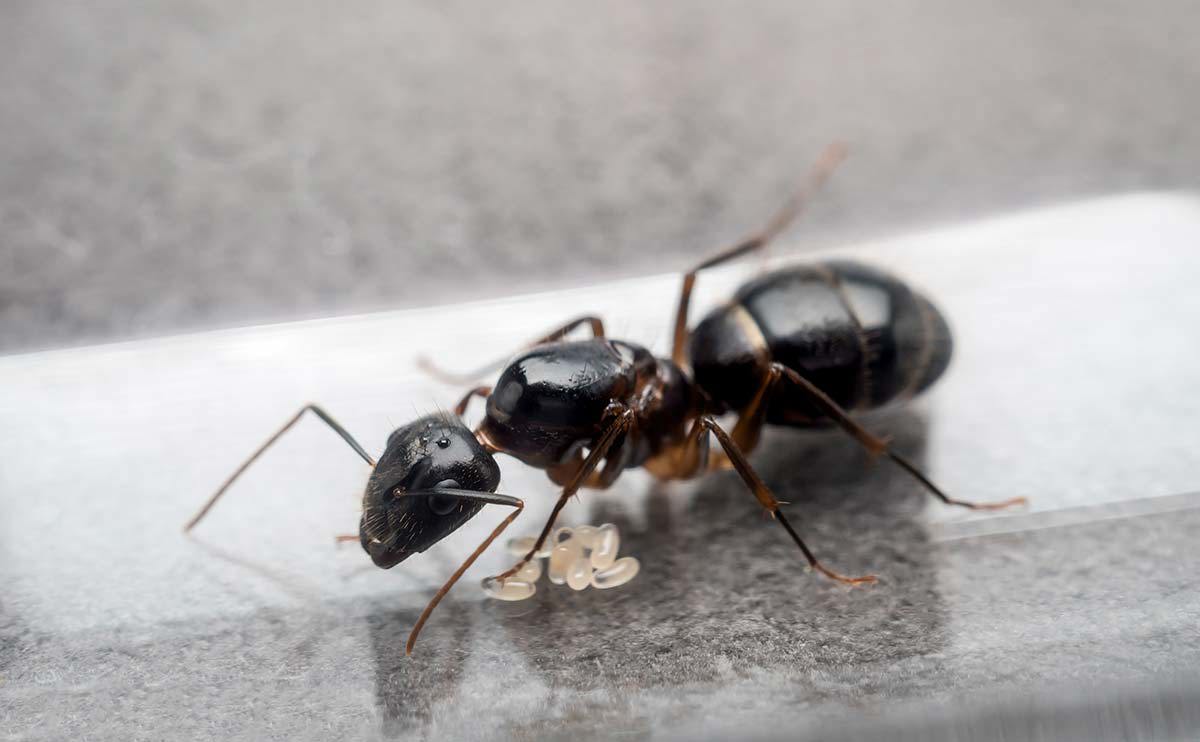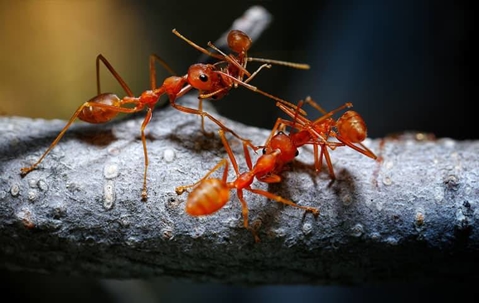Why Pick Our Termite Control Services: Specialist Solutions for Effective Defense
Why Pick Our Termite Control Services: Specialist Solutions for Effective Defense
Blog Article
Ecological Impact of Pest Control: Harmonizing Performance With Sustainability
The ecological impact of pest control is an important problem that requires a delicate equilibrium in between achieving performance in taking care of insects and making sure sustainability of our communities. As we strive to shield our plants, homes, and health and wellness from the risks postured by pests, the methods we employ can inadvertently harm the environment. From making use of harmful chemicals that seep into our soil and water to the unintended repercussions on non-target varieties, the effects of standard pest control practices are far-reaching. However, there are arising methods that offer wish for an extra sustainable strategy to pest monitoring. These remedies not only goal to address the immediate bug problems but also consider the long-lasting health of our planet.
Dangerous Chemicals in Parasite Control
The application of unsafe chemicals in pest control poses considerable environmental and health and wellness dangers that call for mindful factor to consider and mitigation techniques. Chemicals, herbicides, and insecticides are frequently utilized to remove parasites, however their widespread application can cause unplanned effects. These chemicals can infect soil, water sources, and the air, affecting not only the targeted insects yet also beneficial bugs, wildlife, and people.

To address these risks, integrated insect management (IPM) methods are being advertised as an extra lasting choice. IPM entails a mix of methods such as biological control, habitat adjustment, and the targeted usage of pesticides as a last resort (ant control kingsmountain nc). By taking on an all natural approach to pest control, we can reduce the ecological and wellness impacts connected with harmful chemicals while effectively handling pest populaces
Effect On Non-Target Variety
Taking into consideration the unintended repercussions of bug control techniques, the effect on non-target varieties is a crucial element that needs thorough evaluation. While insect control actions intend to target specific parasites, other microorganisms in the ecological community may be accidentally affected. Non-target species, including helpful insects, birds, mammals, and also plants, can endure straight or indirect damage from pesticide applications or biological control techniques.
Insecticides made to fight a particular bug parasite may damage pollinators like bees or natural predators such as ladybugs. Biological control agents, if not species-specific, can present threats to unplanned targets, disrupting the environmental equilibrium.
To mitigate the influence on non-target varieties, integrated bug monitoring (IPM) techniques that emphasize a holistic method to pest control are advised. These techniques focus on making use of eco-friendly methods, minimizing damage to valuable organisms while effectively managing pest populations. Carrying out comprehensive danger assessments and keeping an eye on the end results of parasite control initiatives are vital action in guarding non-target varieties and advertising total community health.
Dirt and Water Contamination
Unexpected environmental effects of bug control techniques extend past affecting non-target species, with substantial effects for soil and water contamination. Pesticides, herbicides, and chemical plant foods utilized in pest control can seep right into the soil and contaminate groundwater, posing a hazard to both water and terrestrial ecosystems. Dirt contamination can disrupt the balance of microbes important for nutrient cycling and plant development, resulting in lowered soil fertility and performance. These chemicals can linger in the environment for extensive periods, building up in the dirt and potentially going into the food chain.
Water contamination is one more vital concern related to insect control techniques. Overflow from agricultural fields treated with pesticides can carry these chemicals right into nearby water bodies, impacting aquatic organisms and water quality. Contaminants in water sources can have far-ranging repercussions, influencing not only aquatic life however additionally human health through the consumption of infected water or marine microorganisms. To minimize dirt and water contamination from pest control tasks, incorporated parasite management techniques that focus on sustainability and lessen chemical inputs are crucial.
Air Air Pollution From Chemical Use
Direct exposure to airborne pesticides throughout agricultural applications poses a considerable issue for air pollution control actions. When pesticides are sprayed onto plants, they can volatilize into the air and form unpredictable organic compounds (VOCs) and various other air-borne pollutants. These chemicals can add to the development of ground-level ozone, a major component of smoke that can have damaging effects on human wellness, plant productivity, and overall air top quality. Furthermore, pesticide drift, where chemicals are brought by the wind to unintended locations, can cause the contamination of nearby ecosystems and water bodies.

Techniques for Lasting Insect Control
In the world of agricultural techniques, carrying out lasting insect control techniques is extremely important for maintaining eco-friendly balance and guarding plant yields. Sustainable insect control emphasizes the use of eco pleasant techniques to take care of bug populations effectively while lessening damage to non-target microorganisms and ecosystems. Integrated Insect Administration (IPM) is an extensively adopted strategy that combines organic, cultural, physical, and chemical control techniques to achieve long-lasting insect monitoring remedies.
One secret approach in sustainable bug control is advertising biodiversity within agroecosystems. By enhancing all-natural adversaries of pests, such as parasitoids and predators, farmers can reduce the need for artificial chemicals. Crop rotation and diversity are likewise effective techniques to disrupt pest life cycles and develop much less beneficial problems for bugs to thrive. In addition, using pest-resistant crop selections and employing methods like catch cropping can help in reducing parasite pressure without relying greatly on chemical treatments. Eventually, by integrating these lasting insect control techniques, farmers can achieve an equilibrium between pest monitoring efficiency and environmental stewardship.
Verdict
In conclusion, the ecological impact of bug control methods need to be thoroughly taken into consideration to stabilize effectiveness with sustainability. Unsafe chemicals utilized in pest control can cause soil and water contamination, air contamination, and injury non-target types - ant control services. It is crucial to carry out sustainable bug control strategies to minimize these adverse effects on the setting and promote a healthier environment for future generations
By taking on a holistic method to pest control, we can lessen the ecological and health effects connected with harmful chemicals while successfully taking care of pest populations.

To reduce the air contamination triggered by chemical use, it is crucial to embrace incorporated insect management techniques that prioritize the usage of non-chemical pest control techniques, such as crop rotation, natural predators, and immune plant ranges. Lasting pest control highlights the usage of ecologically pleasant methods to handle parasite populations successfully while minimizing damage to non-target microorganisms and ecosystems. Integrated Bug Management (IPM) is an extensively adopted technique that incorporates biological, social, physical, and chemical control Full Report methods to attain long-lasting pest administration solutions.
Report this page